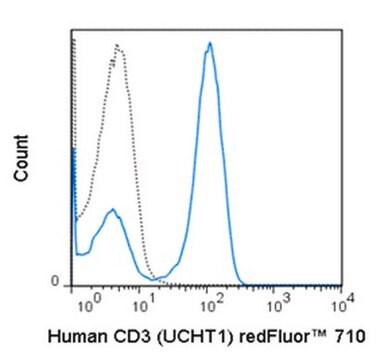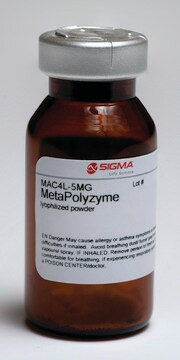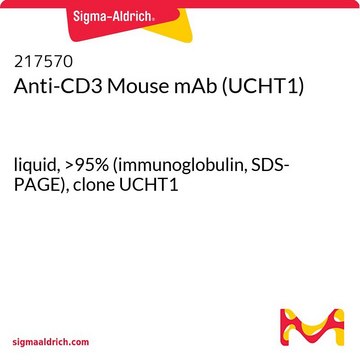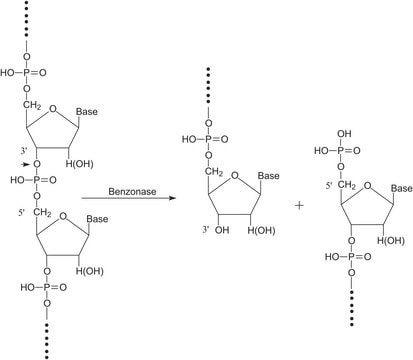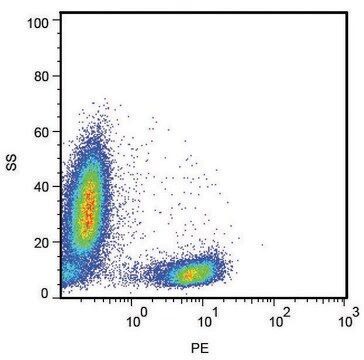Kluczowe dokumenty
C7831
Anti-CD28 antibody, Mouse monoclonal
clone CD28.2, purified from hybridoma cell culture
Synonim(y):
Monoclonal Anti-CD28
About This Item
Polecane produkty
pochodzenie biologiczne
mouse
Poziom jakości
białko sprzężone
unconjugated
forma przeciwciała
purified immunoglobulin
rodzaj przeciwciała
primary antibodies
klon
CD28.2, monoclonal
Postać
buffered aqueous solution
masa cząsteczkowa
antigen 44 kDa
reaktywność gatunkowa
human, rhesus monkey
metody
flow cytometry: 5 μL using 1 × 106 cells
immunocytochemistry: suitable
immunohistochemistry (frozen sections): suitable
izotyp
IgG1
numer dostępu UniProt
Warunki transportu
wet ice
temp. przechowywania
2-8°C
docelowa modyfikacja potranslacyjna
unmodified
informacje o genach
human ... CD28(940)
Szukasz podobnych produktów? Odwiedź Przewodnik dotyczący porównywania produktów
Powiązane kategorie
Opis ogólny
Specyficzność
5th Workshop: code no. CD28.05.
Immunogen
Zastosowanie
- Flow cytometry at a dilution of 5μL using 1 × 106 cells
- Immunocytochemistry
- Immunohistochemistry (frozen sections)
Działania biochem./fizjol.
Opis wartości docelowych
Postać fizyczna
Oświadczenie o zrzeczeniu się odpowiedzialności
Nie możesz znaleźć właściwego produktu?
Wypróbuj nasz Narzędzie selektora produktów.
Kod klasy składowania
10 - Combustible liquids
Klasa zagrożenia wodnego (WGK)
WGK 3
Temperatura zapłonu (°F)
Not applicable
Temperatura zapłonu (°C)
Not applicable
Certyfikaty analizy (CoA)
Poszukaj Certyfikaty analizy (CoA), wpisując numer partii/serii produktów. Numery serii i partii można znaleźć na etykiecie produktu po słowach „seria” lub „partia”.
Masz już ten produkt?
Dokumenty związane z niedawno zakupionymi produktami zostały zamieszczone w Bibliotece dokumentów.
Nasz zespół naukowców ma doświadczenie we wszystkich obszarach badań, w tym w naukach przyrodniczych, materiałoznawstwie, syntezie chemicznej, chromatografii, analityce i wielu innych dziedzinach.
Skontaktuj się z zespołem ds. pomocy technicznej

